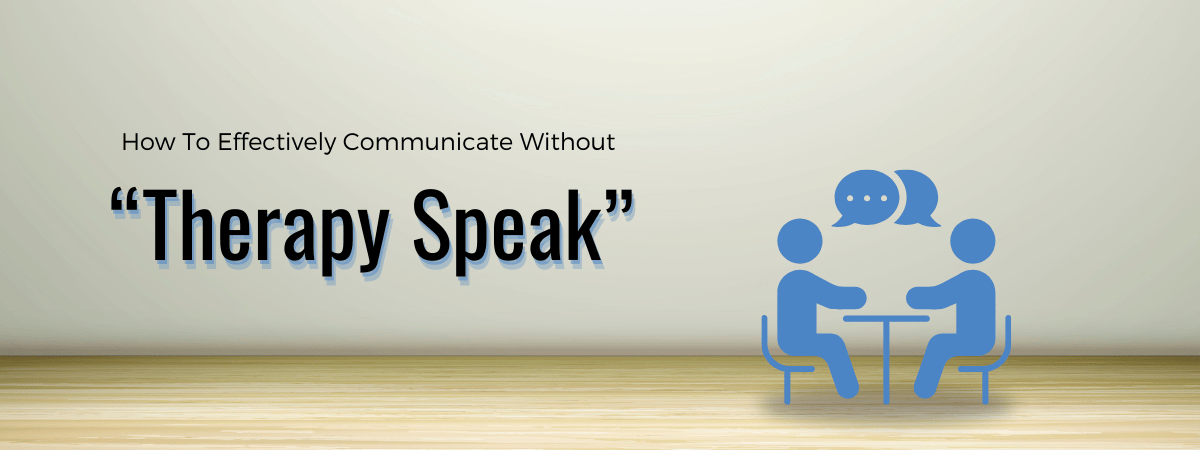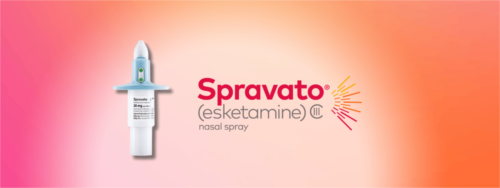

Why You Need To Avoid "Therapy Speak" in Daily Conversations
There’s been a greater emphasis on mental health in recent years, bringing previously unspoken topics into the public domain. While this shift is admirable, it has also initiated a trend that can impede valuable conversation: "therapy speak."
This sort of discourse is misconstrued, overused, and stretched beyond its original intent by inexperienced people in everyday situations and on modern populist social media like Instagram, TikTok, and more. Learn more about what defines therapy speak, how it influences people, and explore tips on speaking about mental health care more productively.
What Is Therapy Speak?
Therapy speak is the act of employing psychological terminology, often borrowed from treatment sessions, in regular discourse. Some expressions have shifted from professional environments and become widespread in social media posts, headlines, and, even worse, heated arguments between loved ones.
When these expressions are used improperly in regular communication, they can transform into a means to evade more meaningful dialogue and harmfully misinterpret complicated emotions. What could be valuable conversations often cease abruptly with lasting negative implications, as individuals with no training or credentials might misdiagnose themselves or others they care about.
Here are several cases of therapy speak:
- “I’m setting a boundary,”
- “That’s triggering for me,”
- “Are you doing the work?”
- “Is it a safe space?”
- “Maybe you’re processing your trauma.”
While these phrases can be helpful and rewarding within a therapeutic surrounding at a licensed facility like The Counseling Center, they are typically out of place in everyday discussions.
Therapy Speak Can Diminish Authentic Conversation
At TCC, we promote incorporating mental health practices into everyday life. However, we also acknowledge the potential drawbacks of adopting clinical or technical language outside therapeutic settings. Turning to therapy speak can weaken the genuine intent of discussions, forming barriers instead of cultivating a mutual connection and understanding. We find people commonly turn to therapy speak as a defense mechanism.
There may be a sense that therapy speak can’t be disputed since it references what you could hear at a mental health facility. Yet effective conversation needs empathy, active listening, and mutual understanding.
The Impact of Therapy Speak
1. Diminishing Real Connections
An overuse of therapy speak can make conversations seem impersonal or clinical, eroding the emotional warmth that promotes real connection. It may “therapize” family discussions, converting significant heart-to-heart dialogue into what may sound like a 30-second reel generated by a mental health provider on TikTok.
To illustrate, exclaiming to someone close to you, “I need to hold space for myself right now,” can sound formal and distant compared to merely stating, “I’m feeling stressed and need some time to think.”
2. Misuse and Misunderstanding
Therapeutic expressions have precise meanings within clinical contexts. Improperly using words like “narcissistic” or “trauma” not only minimizes their true meaning but can also perpetuate stigma around mental health diagnoses. Some try to label others instead of being attentive and allowing time for actual dialogue.
The Counseling Center encourages mindful language that values the significance of terms used in therapy sessions, with the intent that they are not misapplied or weakened in day-to-day conversations. We’ve found that therapy speak typically sows confusion, with numerous terms employed improperly. This language might act as a shield to protect us from guilt, obligation, or judgment.
3. Avoiding Accountability
Although concepts like self-care and setting boundaries are significant, therapy speak can sometimes be misapplied to redirect responsibility or avoid accountability. For instance, saying, “I’m protecting my boundaries,” to explain unhealthy behavior can take away from the honesty and trust needed in mutually beneficial relationships. There are always fresh terms to excuse self-serving or even hostile behaviors. The phrase “boundaries” has become particularly irksome to mental health therapists.
Therapeutic terms are now employed when people simply refuse to do something. With all the disputes that follow, you might wonder if your “boundary” has more significance than your relationship.
How to Communicate Effectively Without Therapy Speak
We believe genuine dialogue doesn’t require complicated terminology. Instead, it’s about being straightforward, considerate, and honest. Our counselors have some helpful tips:
1. Speak From the Heart
Emphasize how you feel in lieu of depending on buzzwords when sharing emotions. For example:
- Instead of: “You’re gaslighting me.”
- Try: “When you say that, it makes me feel like my viewpoint isn’t being valued.”
2. Put An Emphasis On Understanding
Seek to listen actively in lieu of labeling behavior. Counterpoints like “Help me see where you’re coming from” promote productive communication.
3. Be Mindful of Your Audience
Remember that not all individuals are knowledgeable of therapeutic terms. Choosing clear, understandable language ensures your message resonates more effectively.
4. Use Boundaries Carefully
Boundaries are essential, but they should be conveyed thoughtfully. In lieu of: “I’m setting a boundary.” Try: “I need to step back from this conversation for now so I can think clearly.”
Therapy provides tools, not jargon-heavy scripts. Counselors at TCC regularly evaluate how you’re applying what you’ve learned to confirm it improves, rather than diminishes, your relationships.
How The Counseling Center Promotes Better Communication
At The Counseling Center, we work to enable individuals with the tools they need to navigate their mental health while building healthier relationships. Our services include:
- Individual Therapy: One-on-one sessions to build self-understanding and boost emotional intelligence.
- Family and Couples Therapy: Helping loved ones connect more effectively and address disagreements positively.
- Group Therapy: Offering a safe space for authentic communication in a supportive atmosphere. Our professionals stress practical, real-world applications of therapeutic concepts, ensuring you can connect meaningfully with others without falling back on jargon.
Find Specialized Mental Health Support Today
If you want to deepen your understanding of yourself and bolster your relationships, we’re ready to help. Find out more about our intensive outpatient and outpatient services. If you require help right away, please contact our 24-hour hotline at 833-248-6271. Together, we can enable you to communicate with empathy, purpose, and clarity—without sacrificing the essence of who you are.



